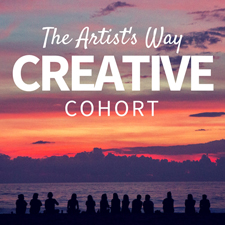 I contemplated telling you my personal burnout story, but I abandoned the idea for two reasons:
I contemplated telling you my personal burnout story, but I abandoned the idea for two reasons:
- It spans years, and you would no doubt become bored before getting to the important stuff, and
- It still brings up some negative emotions for me that I would rather pretend I’ve moved past. 😉
So, instead, I’m going to spare you the sordid details and head right for the important stuff: What I learned, and how it could help you.
- Trying to be what others want you to be is the quickest route to burnout. Just as I was starting my business, a photographer friend told me that the way I wanted to shoot wouldn’t sell because it’s not what clients want. I understand that she was giving the best advice she could based on her own life and business experiences but — and there’s no real way to sugarcoat this — she was wrong. My best client experiences have involved working with people who wanted me to shoot exactly the way I wanted to. Furthermore, those folks remain my biggest fans to this day. Clients who will love you for who you are and what you bring to the market are not only out there, but they’ll value your work more than those you water down your message to attract.
- Playing to your strengths will make you a lot happier, in life and in business. And, by strengths, I mean what makes you feel strong and internally motivated, not just what you happen to be good at. When I moved to the San Francisco Bay area, folks convinced me that networking was the best way to get my message in front of potential clients. In all truth, I found the process to be painful (because I’m a diehard introvert) and rather ineffective (probably because I hated it). Most of my favorite wedding clients came from advertising. Go figure, right? Traditional advertising still didn’t pay for itself, but it was a better fit for me at the time.
- Decide the value of something before fighting over it. A competitor and former mentor sued me in 2007. Although my attorney asked me the value of the issues before we countersued — in order to decide if the fight was worth it — we easily crept past that initial estimate. It can be difficult to keep a clear head during a long legal slog so, before you start lobbing counterfire, consider the value of an issue and whether it’s worth giving in to preserve your sanity and capital. Along that same line, I’ve generally found that it’s better to be happy than “right.”
- You can’t control other people’s actions or opinions, so don’t bother stressing about either. Some people may lie to you or hide the truth from you, others may talk about you behind your back. For your own sanity and happiness, it’s best to assume that they’re doing the best they can, given the knowledge, understanding and awareness they have at the time and, as my friend Ashley advised me long ago, “avoid becoming embittered by it.”
- The closer you are to burnout, the more likely you are to lose sight of strategy. You’ll ask yourself, “What can I do right now to save my sanity or my business?” Well, the smartest thing — and the hardest one to remember — is to take a step back and to make sure your goals are setting your strategy, and your strategy is guiding your choice of tactics. Your gut probably isn’t serving you that well by that time, and it will tell you to grasp at whatever seems novel and easy.
So, there you have it: the lessons I learned from my burnout as a wedding and portrait photographer. I truly hope you never lose passion for the work you love, but if you ever start to, I hope my experience will help you avoid some of the pain.
Cheers,





















Business Success, Part 5 – On Instincts & First Impressions » KateWatson.net - […] part of the reason I’m no longer a photographer. For more lessons from my burnout, check out this post. But, for now, let’s move on to more secrets of my […]